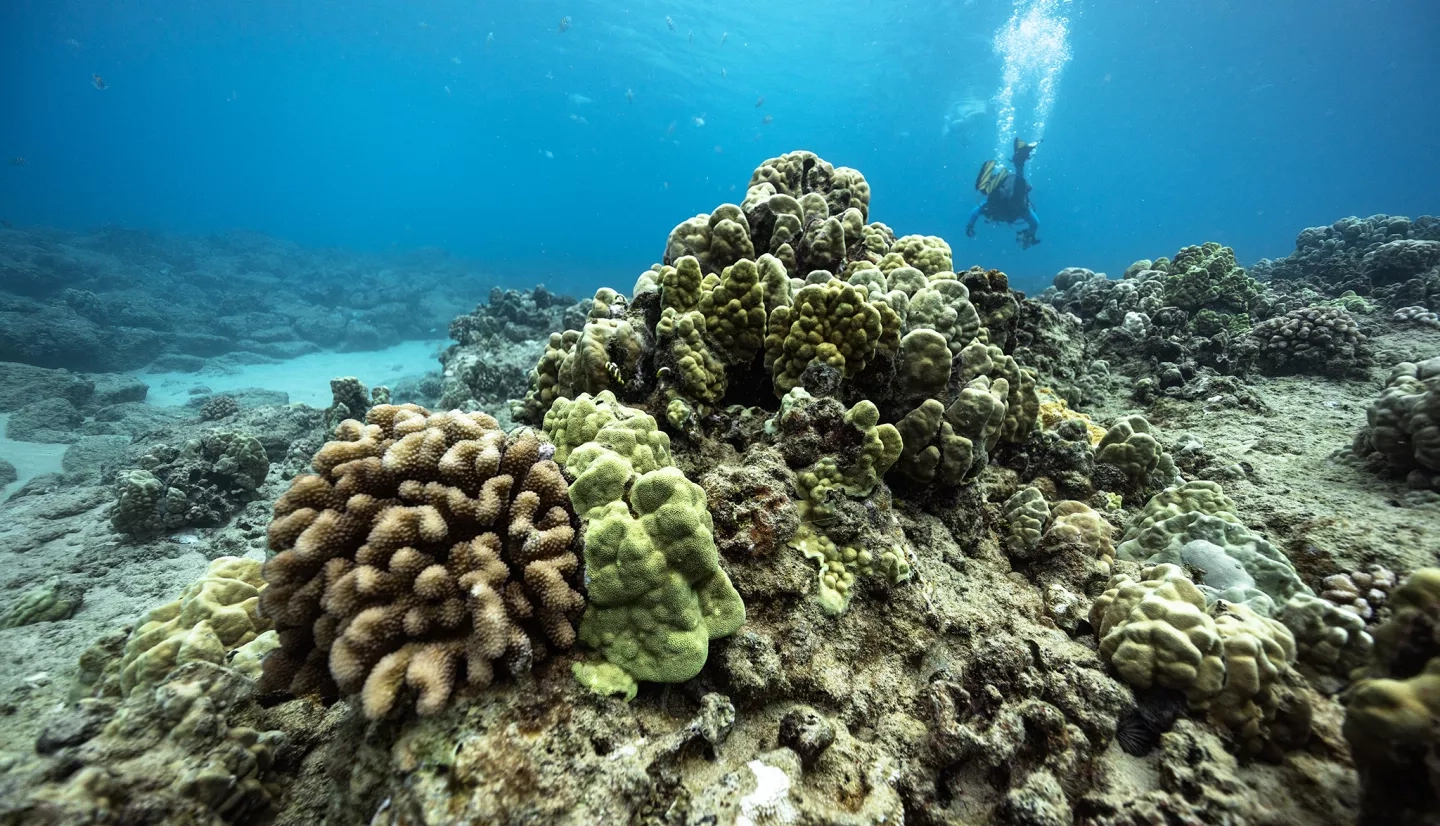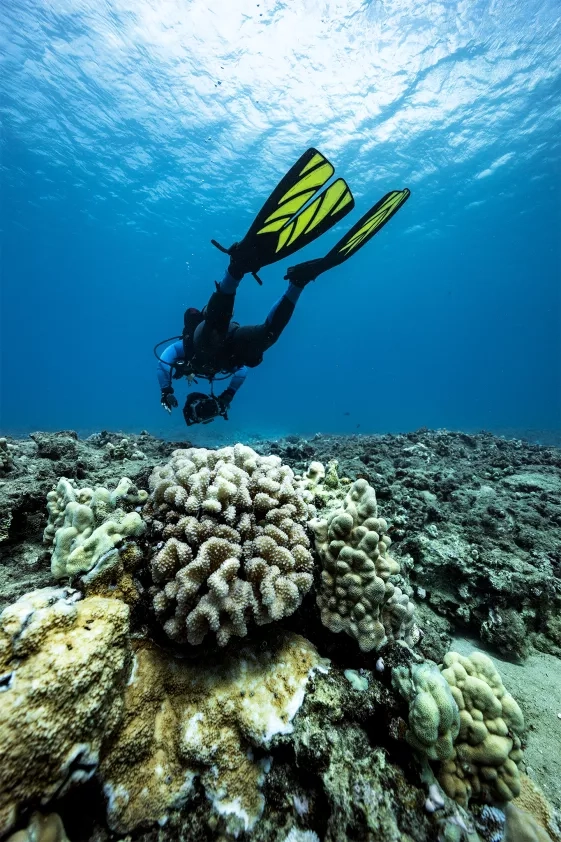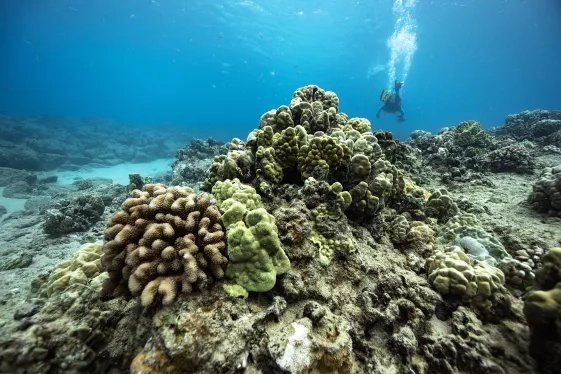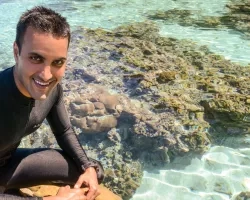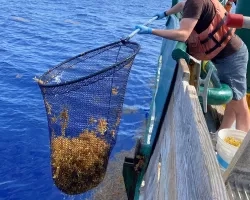This video series highlights Ecological Forecasting program area projects.
Coral reefs are the most biologically diverse and species-rich marine ecosystem on Earth. Millions of species of fish, sponges, oysters, clams, crabs, lobsters, squid, seahorses, sea urchins and more call coral reefs home. While disease is a natural part of marine ecosystems, increased runoff, global climate change, and human impacts cause corals to become stressed and contract diseases.
To help reduce coral reef disease outbreaks across the Pacific Ocean, Megan Donahue, a researcher at the Hawaii Institute of Marine Biology, and her team of scientists are developing short-term ecological forecast models to help provide an early warning system for scientists and reef managers of when coral disease outbreaks are more likely to occur.
This predictive management tool is used by end users to detect early changes in the environment and protect coral reef ecosystems.
